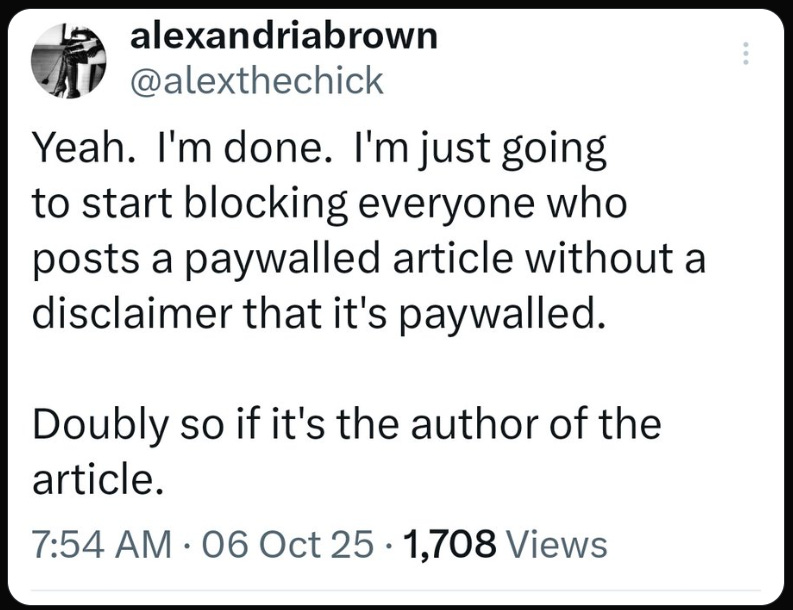This week, fresh off the irritation of observing a massive readers group give a full-throated endorsement of book piracy, I saw a Twitter user express outrage at people who posted paywalled articles without a disclaimer. She found the lack of disclaimer so enraging that she would block anyone who failed to warn people of the presence of a paywall.
I thought that was an oddly aggressive take, though made in good faith. We have mutuals in common, so I responded with what I thought was a measured take: paywalled articles are only problematic when used as “proof” for controversial claims in tweets. Otherwise, writers charging for their work is perfectly reasonable. Writing is a job requiring skill, time, and effort. If readers find value in it, asking for money isn’t wrong.



